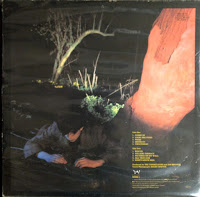As the year ends, magazines and blogs are getting their "year in music" specials ready. And you can bet that on the top of everyone's list will be the death of David Bowie last January. As hard it is to argue with that, it would be unfair to let it overshadow the passing of many other important musicians in this wretched year. I published a partial list in the spring and it is with regret that I must compile a second one, with artists who have made such beautiful and timeless music and whom we lost between April and December 2016.
Thank You For The Music
Leonard Cohen (singer, poet)
George Michael (singer, Wham!)
Scotty Moore (Elvis' legendary guitarist)
Alan Vega (Suicide, the NYC band)
Rick Parfitt (singer, Status Quo)
Leon Russell (singer, songwriter, pianist)
Greg Lake (bass/vocals, King Crimson/ELP)
Dave Swarbrick (folk rock fiddler, Fairport Convention)
Phil Chess (producer, co-founder of Chess Records)
Prince Buster (Jamaican ska legend)
Mose Allison (jazz/blues pianist and singer)
Pete Burns (singer, Dead or Alive)
Sharon Jones (soul singer)
Candye Kane (jazz/blues singer)
Bobby Vee (early 60's pop idol)
Billy Paul (soul singer)
Kay Starr (40's jazz singer )
Toots Thielemans (jazz harmonica)
Bernie Worrell (Keyboards, Parliament/Funkadelic)
Bap Kennedy (singer, Energy Orchard)
Eddie Harsch (drummer, The Black Crowes)
Craig Gill (drummer, Inspiral Carpets)
Nick Menza (drummer, Megadeth)
Alphonse Mouzon (jazz drummer, Weather Report)
Alexandrov Ensemble (Red Army Choir, plane crash Tu-154)
Preston Hubbard (bassist, Fabulous Thunderbirds/Roomful of Blues)
Henry McCullough (Spooky Tooth/Animals/Wings)
Bobby Hutcherson (jazz vibraphonist)
Wayne Jackson (Trumpet, The Mar-Keys)
Teddy Rooney (60's psych band The Yellow Payges)
Matt Roberts (guitarist, 3 Doors Down)
Danny Smythe (drummer, The Box Tops)
Lewis Steinberg (Booker T. & the M.G.'s)
Keith Gemmell (70's art rockers Audience)
Roye Albrighton (guitar & vocals prog rockers Nektar)
Sandy Pearlman (Blue Öyster Cult)
Padraig Duggan (Celtic band Clannad)
Glenn Yarbrough (folk singer, The Limeliters)
Mick Zane (guitarist, metal band Malice)
James Woolley (keys, Nine Inch Nails)
Ab Tamober (drummer, Dutch psych band Earth and Fire)
Jerry Corbetta (keyboardist and frontman for 70's band Sugarloaf)
Micky Fitz (singer, English punk rockers The Business)
John D. Loudermilk (songwriter, musician)
Gilli Smyth (vocals/lyrics for prog rockers Gong)
John Berry (early Beastie Boys member)
Don Ciccone (Four Seasons)
Leonard Haze (drummer, Y&T)
Leonard Cohen (singer, poet)
George Michael (singer, Wham!)
Scotty Moore (Elvis' legendary guitarist)
Alan Vega (Suicide, the NYC band)
Rick Parfitt (singer, Status Quo)
Leon Russell (singer, songwriter, pianist)
Greg Lake (bass/vocals, King Crimson/ELP)
Dave Swarbrick (folk rock fiddler, Fairport Convention)
Phil Chess (producer, co-founder of Chess Records)
Prince Buster (Jamaican ska legend)
Mose Allison (jazz/blues pianist and singer)
Pete Burns (singer, Dead or Alive)
Sharon Jones (soul singer)
Candye Kane (jazz/blues singer)
Bobby Vee (early 60's pop idol)
Billy Paul (soul singer)
Kay Starr (40's jazz singer )
Toots Thielemans (jazz harmonica)
Bernie Worrell (Keyboards, Parliament/Funkadelic)
Bap Kennedy (singer, Energy Orchard)
Eddie Harsch (drummer, The Black Crowes)
Craig Gill (drummer, Inspiral Carpets)
Nick Menza (drummer, Megadeth)
Alphonse Mouzon (jazz drummer, Weather Report)
Alexandrov Ensemble (Red Army Choir, plane crash Tu-154)
Preston Hubbard (bassist, Fabulous Thunderbirds/Roomful of Blues)
Henry McCullough (Spooky Tooth/Animals/Wings)
Bobby Hutcherson (jazz vibraphonist)
Wayne Jackson (Trumpet, The Mar-Keys)
Teddy Rooney (60's psych band The Yellow Payges)
Matt Roberts (guitarist, 3 Doors Down)
Danny Smythe (drummer, The Box Tops)
Lewis Steinberg (Booker T. & the M.G.'s)
Keith Gemmell (70's art rockers Audience)
Roye Albrighton (guitar & vocals prog rockers Nektar)
Sandy Pearlman (Blue Öyster Cult)
Padraig Duggan (Celtic band Clannad)
Glenn Yarbrough (folk singer, The Limeliters)
Mick Zane (guitarist, metal band Malice)
James Woolley (keys, Nine Inch Nails)
Ab Tamober (drummer, Dutch psych band Earth and Fire)
Jerry Corbetta (keyboardist and frontman for 70's band Sugarloaf)
Micky Fitz (singer, English punk rockers The Business)
John D. Loudermilk (songwriter, musician)
Gilli Smyth (vocals/lyrics for prog rockers Gong)
John Berry (early Beastie Boys member)
Don Ciccone (Four Seasons)
Leonard Haze (drummer, Y&T)

























